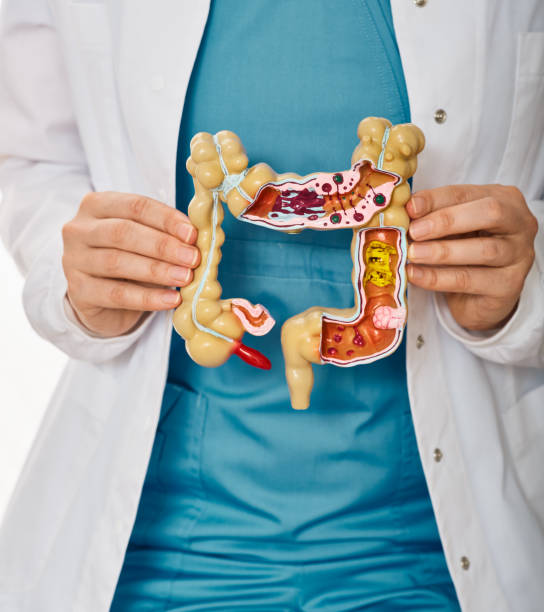By Dr. Marta Martinelli, Nutritionist at Aventino Medical Group, Rome
Introduction
The gut microbioma is a complex ecosystem of various microorganisms that plays a fundamental role in our body. Its composition is strongly influenced by diet and regulates essential physiological processes that contribute to overall well-being.
A healthy microbioma is associated with good digestion, a strong immune system, and even a positive mood. Conversely, an imbalanced microbiome can promote chronic inflammation, obesity, diabetes, insomnia, and mood disorders.

At Aventino Medical Group in Rome, our team of nutritionists and specialists offers personalized consultations to help patients improve their gut health through a balanced and mindful diet.
The role of the gut microbioma in metabolism and health
As a nutrition professional, I help my patients understand the importance of the gut microbioma, composed of billions of microorganisms that perform essential functions for the human body, including:
- Metabolism regulation: Influences energy extraction from food and fat storage.
- Nutrient absorption: Facilitates food digestion and, through fiber breakdown, produces short-chain fatty acids such as butyric acid, which protects against inflammation and intestinal neoplasms.
- Immune system regulation: Modulates inflammatory responses and protects against infections.
- Gut-brain communication: Through the enteric nervous system, the gut communicates bidirectionally with the central nervous system. The microbioma influences the brain via the endocrine, immune, and metabolic systems, producing molecules that contribute to how the nervous system develops, matures, ages, and maintains balance.
Diet and microbiome: which foods promote bacterial balance?
A diet rich in specific nutrients can support a healthy microbioma and prevent imbalances that lead to metabolic and inflammatory disorders. Here are some key food groups:
Fiber-rich foods
Dietary fiber acts as a prebiotic, nourishing beneficial gut bacteria. Important sources of fiber include:
- Leafy green vegetables (spinach, kale, Swiss chard)
- Legumes (chickpeas, lentils, beans)
- Fresh and dried fruits (apples, pears, walnuts)
- Whole grains (oats, quinoa, farro)

Polyphenols: powerful microbiome allies
Polyphenols are plant compounds with antioxidant properties that support the growth of beneficial bacteria and reduce inflammation. They are found in:
- Berries (blueberries, raspberries, currants)
- Green tea
- Extra virgin olive oil
- Spices (turmeric, ginger, cinnamon)
Probiotics: found in fermented foods
Probiotics are live bacteria that enhance the gut microbioma, promoting balance. Natural probiotic sources include:
- Yogurt and kefir
- Aged cheeses
- Miso and tempeh
- Kombucha
Effects of an unbalanced diet on the microbiome
A diet high in refined sugars, ultra-processed foods, and low in fiber can lead to gut dysbiosis, characterized by:
- Chronic inflammation: Increases the risk of autoimmune and cardiovascular diseases.
- Weight gain and insulin resistance: Disrupts metabolism regulation, predisposing individuals to diabetes and chronic conditions.
- Mood and sleep disorders: An unbalanced microbioma may promote pro-inflammatory cytokines, contributing to insomnia and mood disturbances.
2025-03 Martinelli_IMMAGINE 3
Strategies to improve the microbioma through nutrition
- Follow a varied diet rich in fiber and polyphenols.
- Avoid processed foods high in sugars and saturated fats.
- Consume fermented foods to benefit from probiotic content.
- Stay hydrated to support intestinal transit.
- Maintain an active lifestyle, as exercise supports microbial diversity.
Connections with other medical disciplines and institutions
A healthy microbioma not only affects digestion but also impacts various medical fields, including:
- Psychology and Psychiatry: The gut microbioma plays a role in neurotransmitter production (serotonin, GABA), influencing mood and mental well-being.
- Immunology: A balanced gut flora helps modulate immune responses, reducing the risk of autoimmune and inflammatory diseases.
- Cardiology: Certain gut bacteria contribute to cardiovascular health by regulating fat metabolism and cholesterol levels.
For further reading on the connection between nutrition and gut health, you can consult reputable sources such as:
- World Health Organization (WHO) – https://www.who.int/
- National Institutes of Health (NIH) – https://www.nih.gov/
- Italian Society of Human Nutrition (SINU) – https://www.sinu.it/

Frequently asked questions about the gut microbiome
What are the symptoms of an altered microbioma?
The most common symptoms include bloating, digestive issues, food intolerances, fatigue, headaches, and mood disorders.
Which foods negatively impact the microbiome?
Foods high in refined sugars, ultra-processed ingredients, saturated fats, and excessive alcohol can damage gut bacterial diversity.
How long does it take to improve the microbioma through diet?
Changes can occur within a few weeks by following a personalized diet rich in fiber, probiotics, and natural foods.
Are probiotic supplements really effective?
Yes, in many cases they can be beneficial, but it is always best to consult a specialist to choose the most suitable product, combined with a proper diet.
Conclusion
A healthy microbioma is fundamental for both physical and mental well-being. Through proper nutrition and a balanced lifestyle, we can support gut health and prevent numerous diseases.
As a nutritionist, I am committed to helping my patients understand the importance of the microbiome and adopt targeted nutritional strategies to improve their health.
If you are interested in a personalized consultation, I am available for nutritional assessments tailored to your well-being.📌 For more information or to book an appointment, visit Dr. Martinelli website page.
